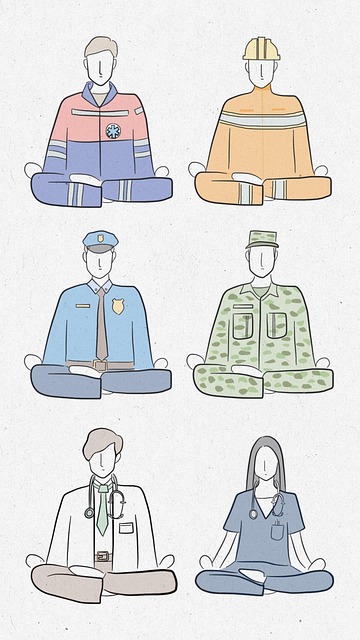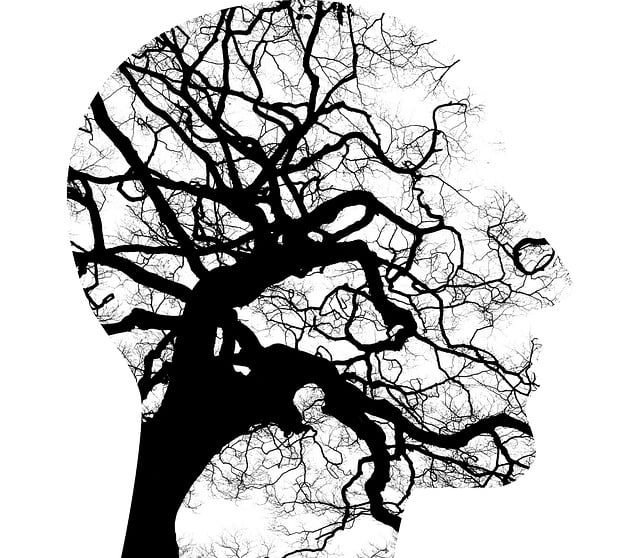Mental health professionals working with elderly clients face unique challenges, including physical decline, cognitive impairment, and social isolation, which can exacerbate mental health issues like anxiety, depression, and financial strain. Effective interventions require tailored assessments, active listening, understanding life histories, and coping mechanisms. Strategies include conflict resolution techniques, stress reduction methods (like mindfulness), clear communication, and simplified therapeutic materials. Crisis intervention guidance and burnout prevention are crucial due to the emotionally taxing nature of working with elders. Early recognition of signs and tailored therapy approaches, facilitated by Mental Health Education Programs, foster better outcomes for both professionals and elderly clients, especially those dealing with divorce later in life.
Mental health professionals increasingly encounter complex challenges when treating elderly clients, especially those dealing with issues related to divorce. This article delves into the critical risk assessment process, focusing on identifying unique risks specific to the elderly, such as cognitive decline and social isolation. It explores vulnerabilities in therapy settings, including recognizing emotional distress and evaluating therapist-client boundaries. Furthermore, it discusses comprehensive risk management strategies, emphasizing individualized treatment plans, trauma-informed care, and collaborative support networks for holistic client care.
- Identifying Risks Specific to Elderly Clients
- – Exploring the unique challenges of working with elderly individuals
- – Considering cognitive decline, social isolation, and grief as potential risk factors
Identifying Risks Specific to Elderly Clients

Mental health professionals working with elderly clients must be attuned to unique risks that arise due to age-related factors. As individuals age, they often face physical health decline, cognitive impairment, and social isolation, all of which can significantly impact their mental wellness. These challenges may stem from various sources, such as chronic illnesses, the death of loved ones, or the stress of adapting to changing life circumstances. For example, elderly clients navigating therapy for divorce may experience heightened anxiety and depression due to the loss of a long-term partnership, coupled with potential financial strain and the need for significant lifestyle adjustments.
Identifying these risks requires professionals to employ tailored assessment tools and engage in active listening during intake interviews. By delving into their clients’ life histories, current stressors, and coping mechanisms, mental health practitioners can develop effective interventions. This may include integrating conflict resolution techniques to address intergenerational or marital conflicts, as well as implementing stress reduction methods tailored to the elderly population’s needs, such as mindfulness practices or gentle exercise routines. Additionally, considering the potential for cognitive changes, clear communication and simplifying therapeutic materials can enhance engagement and outcomes.
– Exploring the unique challenges of working with elderly individuals

Working with elderly individuals presents a unique set of challenges for mental health professionals. As people age, they often experience complex life transitions, such as retirement, loss of loved ones, and adjustments to changing health conditions. These factors can significantly impact their mental well-being and contribute to increased vulnerability. Therapists must be adept at navigating these intricate personal narratives, offering sensitive support tailored to the specific needs of this demographic.
The process of therapy for elders may also involve addressing unique concerns, such as ageism and social isolation. Many elderly clients have experienced significant life changes related to divorce or the loss of a spouse, which can lead to feelings of loneliness and depression. Crisis intervention guidance is crucial in these situations, helping individuals develop coping mechanisms and adapt to new circumstances. Additionally, burnout prevention strategies for healthcare providers are essential, as the demanding nature of working with this population can be emotionally taxing. Effective emotional regulation techniques empower both therapists and clients to manage stress and foster a supportive therapeutic environment.
– Considering cognitive decline, social isolation, and grief as potential risk factors

Mental health professionals often encounter individuals facing complex challenges, including cognitive decline, social isolation, and grief. These factors can significantly impact an elderly client’s mental wellness, especially when combined with the stress of a divorce later in life. As therapy for elders becomes increasingly vital, understanding these risk factors is crucial for effective risk management planning for mental health professionals.
Cognitive decline, often associated with aging, can lead to difficulties in processing emotions and making decisions. Social isolation, particularly common among divorced seniors, contributes to feelings of loneliness and depression. Moreover, grief, whether from a divorce or the loss of a loved one, can trigger anxiety and mood disorders. Integrating Mental Health Education Programs Design into practice empowers professionals to recognize these signs early, enabling them to tailor therapy approaches accordingly. Effective risk assessment should be an integral part of the mental wellness framework for both professionals and their clients.
Mental health professionals working with elderly clients face distinct risks stemming from issues like cognitive decline, social isolation, and grief. As our population ages, it’s crucial to understand these unique challenges, especially in the context of therapy for elders navigating divorce or other life transitions. By identifying and mitigating these risks, professionals can ensure better outcomes for their elderly patients while safeguarding their own well-being.














